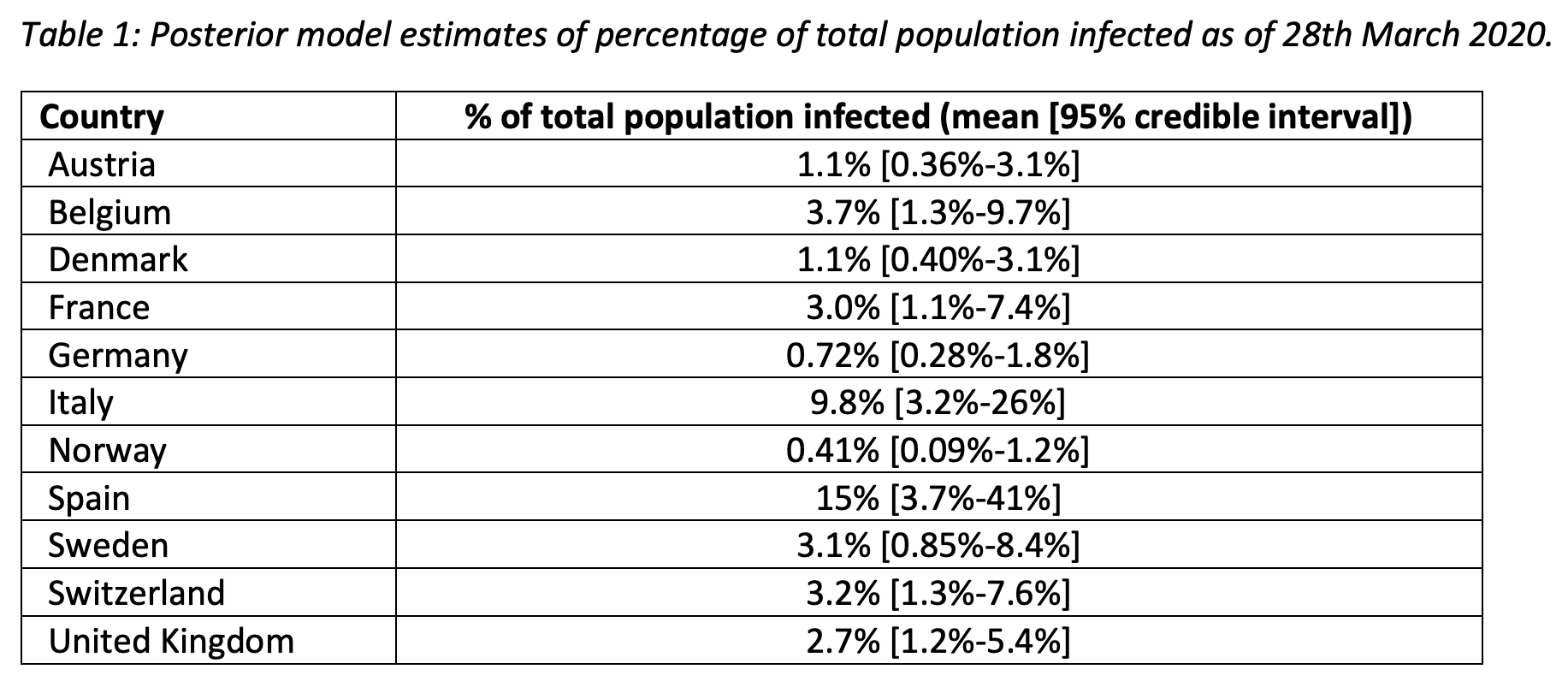A new paper from researchers at the Imperial College London estimates prevalence of COVID-19 infections in 11 European countries, as of March 28th.
From the paper:
In this report, we use a semi-mechanistic Bayesian hierarchical model to attempt to infer the impact of these interventions across11 European countries.Our methods assume that changes in the reproductive number –a measure of transmission – are an immediate response to these interventions being implemented rather than broader gradual changes in behaviour. Our model estimates these changes by calculating backwards from the deaths observed over time to estimate transmission that occurred several weeks prior, allowing for the time lag between infection and death.
Overall, we estimate that countries have managed to reduce their reproduction number. Our estimates have wide credible intervals and contain 1for countries that have implemented all interventions considered in our analysis. This means that the reproduction number may be above or below this value.With current interventions remaining in place to at least the end of March, we estimate that interventions across all 11 countries will have averted 59,000 deaths up to 31 March [95% credible interval 21,000-120,000]. Many more deaths will be averted through ensuring that interventions remain in place until transmission drops to low levels. We estimate that, across all 11 countries between 7 and 43 million individuals have been infected with SARS-CoV-2 up to 28th March, representing between 1.88% and 11.43% of the population.


